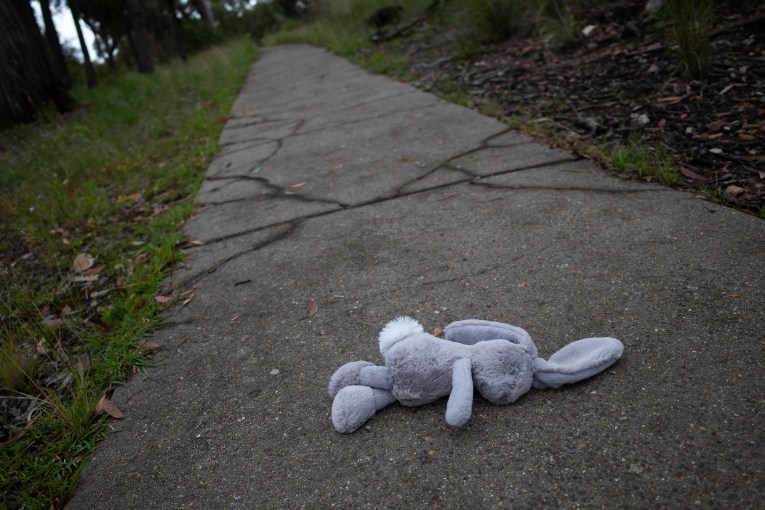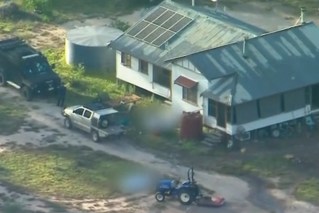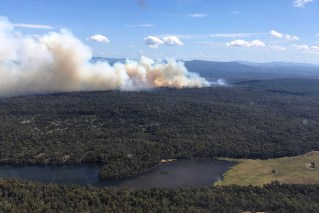The glaring question for Victoria after Ballarat mine tragedy

One of two workers trapped in a Ballarat gold mine accident earlier this week has died, and the other is fighting for his life.
WorkSafe Victoria has launched an investigation into the workplace incident and tragedy, with executive director Dr Narelle Barr saying “it will be a complex, detailed investigation”.
With power granted under the Victorian Occupational Health and Safety Act, WorkSafe will now investigate to both understand the circumstances that caused the incident, and to determine what further action should take place as a result of it.
But this tragedy should also bring into focus what could prove to be a glaring anomaly in the regulation of workplace health and safety (WHS) in Victoria.
And although it may be too early, at least legally speaking, to begin speculation about whether Victoria’s workplace manslaughter laws will have application here, the issue of Victorian WHS legislation, particularly the aspects which deal with duties owed by officers of companies, should be squarely within frame.
This is because the duties and obligations placed on company officers under Victorian law to manage and address WHS are out of step with the position in every other Australian state and territory and, for that matter, New Zealand.
The regulation of WHS under Australian law falls largely within the jurisdiction of the states and territories.
‘Robens model’
It is based on a framework known widely as the “Robens model”, which refers to the UK legislation enacted following a review of health and safety law conducted in the early 1970s by Lord A Robens. It recommended a safety regulation system which created a “positive declaration of over-riding duties” which would “make it clear” that the management of workplace safety “is an all-embracing responsibility, covering all workpeople and working circumstances unless specifically excluded”.
Starting from the top of an organisation down, the idea is just like the slogan, “safety is everyone’s responsibility”.
Australian states and territories throughout the 1970s and ’80s each developed and legislated systems for safety regulation in their respective jurisdiction based on the Robens model, but over time legal developments in each of the states and territories resulted in an inconsistent and cumbersome system of regulation that made compliance difficult and costly for businesses operating across domestic borders.
Time to harmonise
Fast forward to 2007, and the federal government initiated a move to align the states and territories WHS law, proposing to develop a harmonised “model law” which it intended would be adopted by each jurisdiction.
A Coalition of Australian Governments (COAG) forum was established to negotiate the move to harmonisation, and in 2008 COAG signed an agreement to implement model laws giving effect to the federal government’s intentions.
As part of that process, a national review of WHS laws was also commissioned, which produced a report in 2008 that analysed and compared each of the state and territory-based laws, and made recommendations about which aspects, if any, ought to be retained in a harmonised system. Recommendation 40 of that “First Report” dealt with the duties placed on company office holders under WHS law.
It recommended that the “model Act should place a positive duty on an officer to exercise due diligence to ensure the compliance by the entity of which they are an officer with the duties of care of that entity under the model Act”.
Positive duties on office holders
Although in its infancy at the time of drafting the first report, the positive duties placed on office holders would later be set out in the resulting model law to include a duty placed on officers to “gain an understanding of the nature of the operations of the business or undertaking and generally of the hazards and risks associated with those operations”.
From 2011 onwards, Australian states and territories set about enacting what Michael Tooma and Richard Johnstone refer to in their book Work Health and Safety Regulation in Australia as “mirror” versions of the model law agreed on by COAG.
Each of these acts contained the proactive positive due diligence obligations for company officers. All Australian states and territories now have them in force, except for Victoria which retains a standard that provides a reactive duty, differing mainly in that its focus is on what an officer did only after something has actually gone wrong.
And that is because Victoria rejected the harmonised laws, announcing in the 2012-13 budget papers that “Victoria supports the principle of harmonisation but only if the goal is to harmonise around best practice” and that “many of the required changes would take Victoria backwards”.
A New Zealand mine tragedy
On November 19, 2010 an explosion occurred at the Pike River Coal Mine in New Zealand. Twenty-nine workers were trapped and died.
In response to the Pike River tragedy, a royal commission was established to examine the cause of the explosion, the loss of lives and the regulatory regime.
In findings published in October 2012, the Royal Commission examined the recently enacted Australian WHS Model Law, in particular the due diligence regime which it said, “places a positive duty on officers of a company and defines the extent of that duty through the concept of due diligence”.
It also concluded that, with respect to New Zealand safety regulation in the context of a mine tragedy: “What is needed, as experience in the UK and Australia indicates, is a statutory duty requiring directors to play their part at the governance level in ensuring that the company has an effective health and safety management system.”
Following the release of the Royal Commission’s findings, and in view of the shortcomings in New Zealand safety regulations exposed by the Pike River tragedy, the Report of the Independent Taskforce on Workplace Health and Safety was published in April 2013.
That report also recommended that “those in governance roles assume duties” and proposed that, to this end, “in line with the [Australian] model law, a due diligence duty be created for officers” in New Zealand WHS laws.
Victoria remains an outlier
Victoria is yet to enact the model law, nor has the state amended current legislation to reframe and align the duties of company officers to include positive due diligence obligations.
To be clear, none of what I write here is intended to make any suggestion about what impact those laws may have been able to have in preventing the Ballarat tragedy.
It is far too early to make any informed judgement about that, but the opportunity should not be lost to consider this clear regulatory shortfall that persists in Victoria, leaving it out of step with what is clearly a “best practice” due diligence regime applying across the rest of the country.
What I am suggesting is that the issue ought to be revisited to bring Victorian law up to the due diligence standard.
This standard applies in every other state and territory and New Zealand, and is routinely applied by courts across the country to provide a more complete positive duty for the management of WHS which doesn’t require the occurrence of an incident to enliven its effect.
Scott Riches is an employment lawyer and former union official. He is also Director Principal of Capacita.








